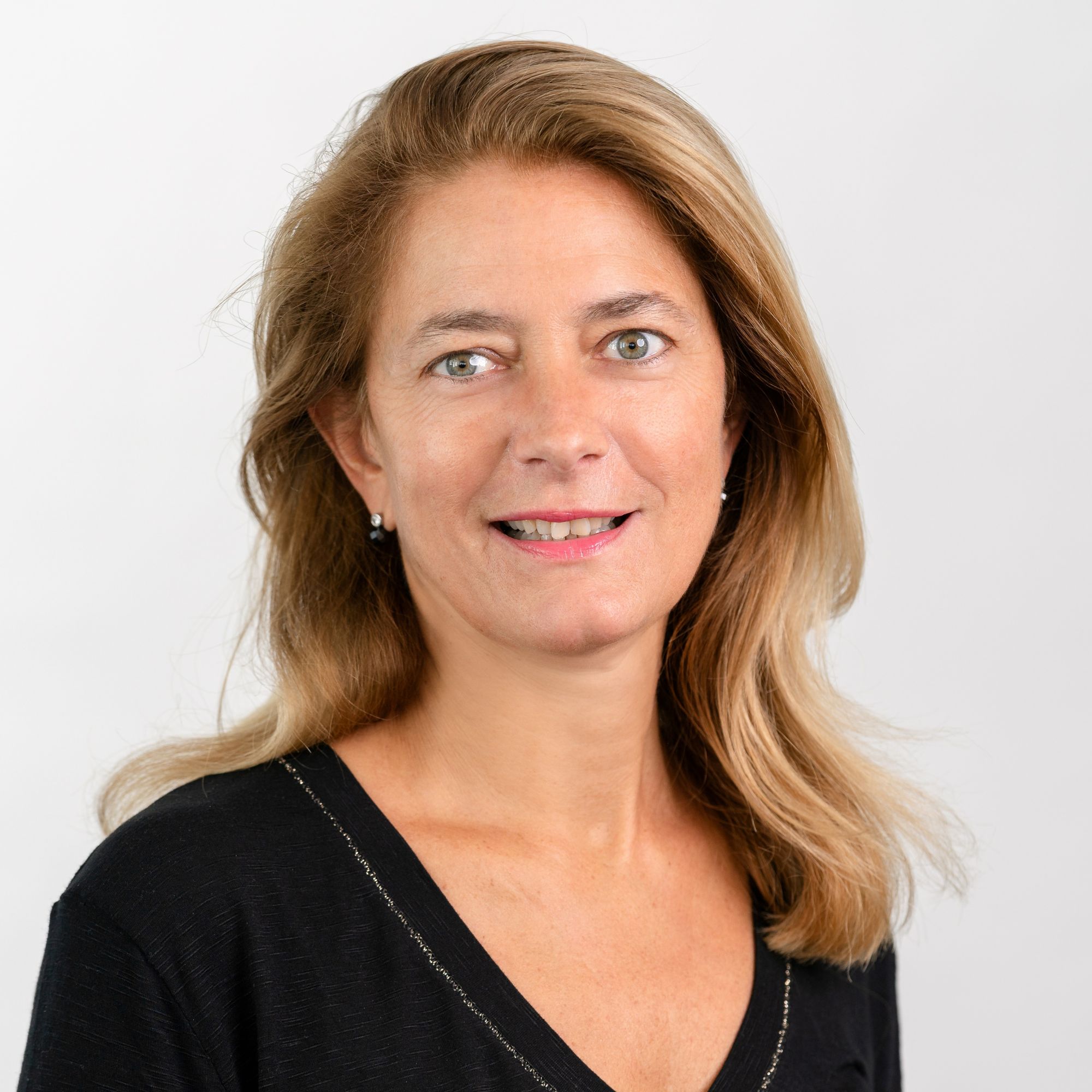- Home
- EN
- Kardham Group
- News
Reinventing office real estate
December 2021
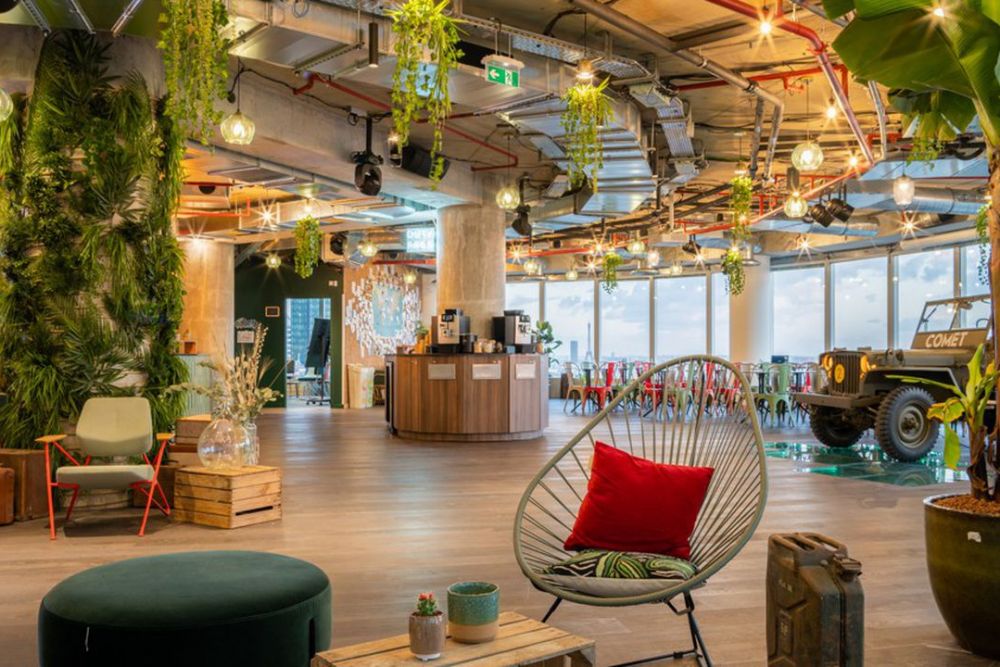
As telecommuting becomes more widespread, giving meaning to office life has become a priority. "The workspaces must express the identity of the company, strengthen the bond of belonging of the employees and amplify the functions of socialization", summarizes Frédéric Miquel, CEO of Kardham. Adapted to the new constraints of the flex office, the office opens up to a greater mix of uses and tenants. Less centralized, it takes hybrid, nomadic or satellite forms, and puts people back at the center of organizations.
Article published in Les Echos by Eugénie Deloire.
Flexible and user-friendly
With an average established at 2 days of teleworking per week and a ratio lowered to 0.67 workstation per person instead of 1, the office is getting into flex office time. Fewer individual workstations but more collaborative spaces and convivial areas to support the collective: an organization that requires flexibility and agility. In Safran's future headquarters, in Malakoff, the platforms have been designed to make the interior spaces scalable, with technical equipment suitable for all configurations and a minimum of footprint.
"The building has been calibrated to accommodate a maximum of staff but the spaces can be adjusted according to needs", explains Sébastien Matty, CEO of GA Smart Building. Remote work increases the need to unite teams. For the head office of the industrialist Delachaux in Colombes, the developer BMA Group has created a “village square”, a place of reception, catering and informal exchanges. "Meeting is the new office", assures Victor Carreau, co-founder of Comet Meetings, for whom the office rhymes with sociability.
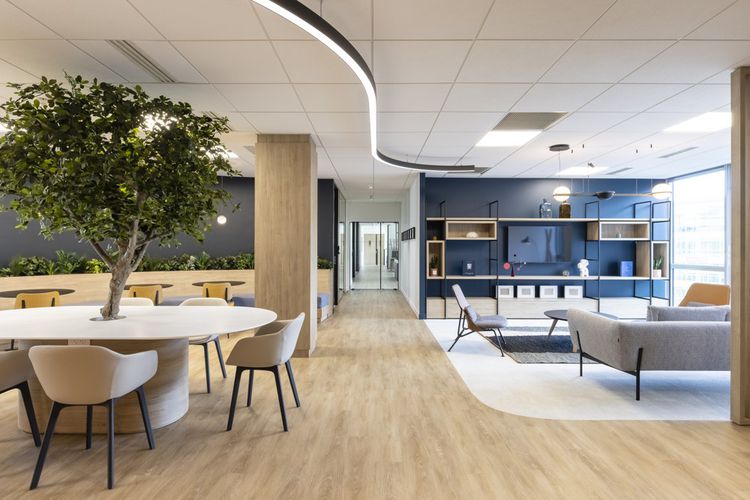
The “village square” of the new head office of the industrialist Delachaux, fitted out by BMA Group. © Alexis Paoli
Mixed and open
Forgotten the impregnable fortresses, the new generation of office towers is opening up to the city and its inhabitants. "It is a real work of sewing and craftsmanship that the promoters operate today to participate in the creation of a quarter-hour city based on a mix of uses and social classes", explains Arnaud Guennoc, Director of Development of AG Real Estate France.
In the Bruneseau district, in full urban transformation, the Duo towers, 180 and 125 meters high, designed by Jean Nouvel, bring together offices - the future headquarters of BPCE and its Natixis subsidiary -, shops, two company restaurants, an auditorium, a hotel with 139 rooms and a bar-restaurant
panoramic.
In Clichy, the Black building built by AXA Im Alts and Redman also pushes the cursor of diversity. This 50,000 m² building, split into two independent buildings and opening onto the Parc des Impressionnistes, has a roof terrace equipped with a 400-meter athletics track and a volleyball court accessible to residents of the neighborhood.
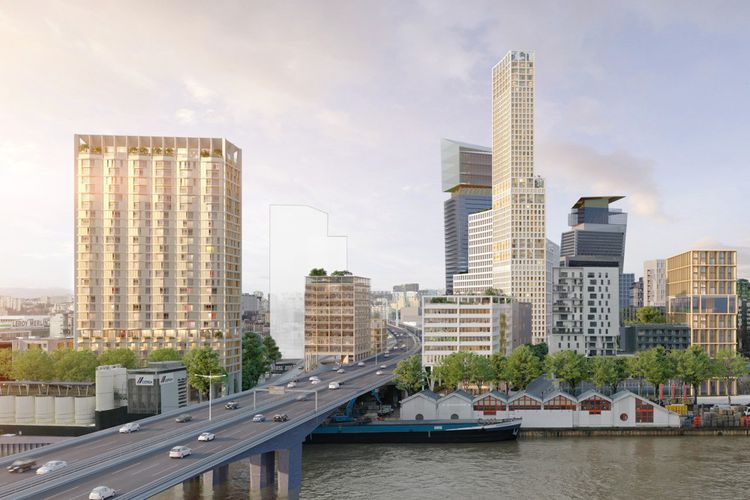
The Bruneseau district, on the border between Paris and Ivry, is the subject of a vast urban renewal operation to become a mixed district made up of housing, shops, offices and services. © Bruneseau
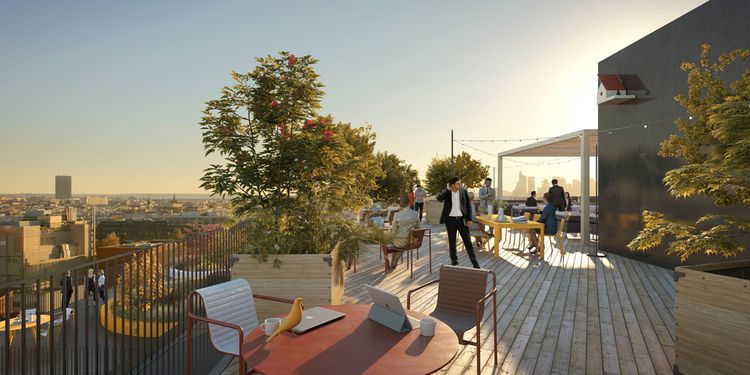
In Clichy, the Black building will total nearly 50,000 m² of flexible workspaces and will thus be able to accommodate up to 4,100 employees for a multiplicity of collaborative modes with nearly 10,000 m² of outdoor spaces, gardens, balconies and more. terraces. © The Other Image
Nomadic and shared
Mistreated during the pandemic, the coworking market has regained its splendor. “We have beaten our record for reservations since September,” rejoices Baptiste Broughton, co-founder of Neo-nomade, a workspace reservation platform. He notes that "a large number of companies wish to reduce their real estate footprint and reinvest this economy in flexible solutions", while others opt to sublet areas that have become vacant. The satelliteization of workplaces brings the office closer to the employees and facilitates nomadism.
“Companies are subscribing their entire workforce to our national network. This allows them to access a workspace less than 10 kilometers from where they are, ”says Christophe Burckart, Managing Director of IWG (Regus and Spaces). The group, which has 130 sites in France, has densified its territorial network by buying, in 2020, the Stop & Work network: teleworking centers located in peri-urban areas, as alternatives to working at home.
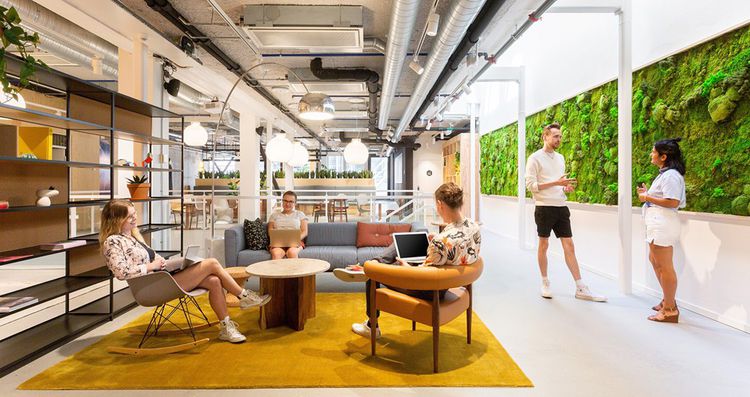
Spaces is a brand of the flexible workspace specialist, IWG. The group, which has 130 sites in France and 3,500 internationally, increased its regional coverage in 2020 thanks to the acquisition of the Stop & Work network. © Iwg
Third places and hybrid spaces
The hybridization of real estate assets has given rise to new concepts such as "workation" or "workspitality" where the office is imbued with the codes of leisure tourism and hotels, and vice versa. Launched before the crisis, the offer of shared or private offices developed by the Accord group was reinforced in 2021 with the inauguration of the “Wojo Corner-L'Appart”, in the Pullman-Eiffel hotel in Paris.
“We are transforming insufficiently optimized spaces in hotels into equipped and connected offices while maintaining a range of hotel services: open 24 hours a day, restaurants, sports halls, attentive reception, etc. », Explains Stéphane Bensimon, CEO of Wojo. CitizenM, Mama Works or Deskopolitan also offer rooms for rent in urban centers.
But the third places are also available on the territories. According to France Tiers-Lieux, their number should increase from 1,800 in 2018 to 3,500 in 2022. In Melun, the old station will thus be transformed into a "multi-use" hotel which will include 4,700 m² of convertible offices, a hotel, a house medical center, a restaurant and services. This project of 12,000 m² in total, called "Prélude", will see the light of day in 2025.
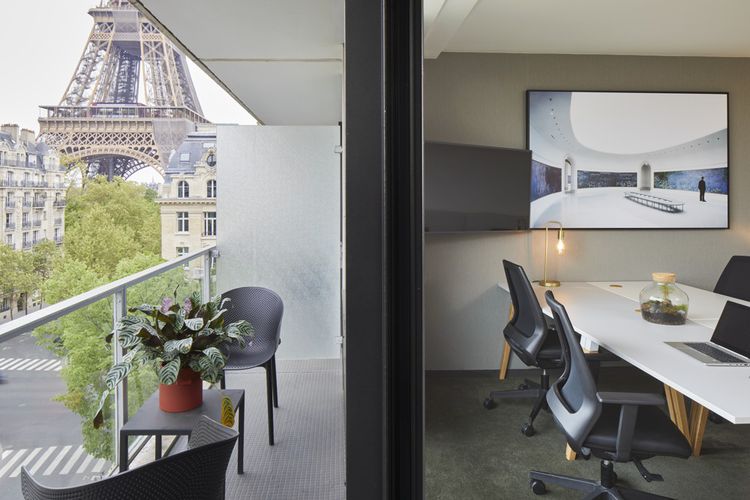
The Accor group launched the new “Wojo Corner-L'Apport” concept in the Pullman-Eiffel hotel (Paris 15th arrondissement): 186 m² of shared offices overlooking Paris. © Wojo
Development: a project called desire
Supporting companies in optimizing their real estate surfaces, developers compete in imagination to make the office more attractive. They are called Moore, Sowen, Quadrilateral or CDB. Their common ambition: to transform the company into a place to live, combining well-being with performance, to make employees want to go to the office. “We apply our design expertise and a methodology similar to that used in the hotel industry to workspaces,” explains Pierre-Alexandre Pillet, co-founder of Sowen. The company was entrusted with the development of the company Mediaperformances in the Alto tower, in La Défense. The project, presented as "ecological and qualitative", provides for the use of recycled materials, ergonomic furniture offering varied working positions as well as a strong presence of plants. With the mantra of "Design is Hospitality", Moore Design, for its part, opened the Five in Paris last September: a building that is both the head office, the innovation laboratory and the showcase of knowledge. -to do. Swearing only by “fluid, functional and beautiful”, the developer claims a tailor-made approach to design spaces reflecting the DNA of each company. Likewise, Quadrilatère conducted three workshops with Crédit Immobilier de France to identify the needs of the teams according to their way of working. The redevelopment of the open space offices, in their headquarters at 26, rue de Madrid in Paris 8th arrondissement, has thus resulted in the removal of metal cladding partitions in favor of acoustic “partitions” and PVC for an absorbent carpet. Finally, to support the start-up Lunii, which plans to double its workforce by the end of 2022, CDB has set up workspaces inspired by the playful and imaginary world of the company. So many seductive operations that make the office desirable ...

